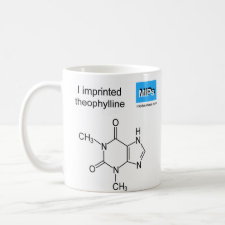
Authors: Xu JX, Gao Y, Li HM
Article Title: Controlled Fabrication of Theophylline Imprinted Polymers on Multiwalled Carbon Nanotubes via Atom Transfer Radical Polymerization.
Publication date: 2011
Journal: Journal of Nanoscience and Nanotechnology
Volume: 11
Issue: (2)
Page numbers: 1217-1224.
DOI: 10.1166/jnn.2011.3095
Alternative URL: http://www.ingentaconnect.com/content/asp/jnn/2011/00000011/00000002/art00044
Abstract: Theophylline imprinted polymers were synthesized on the surface of multiwalled carbon nanotubes via atom transfer radical polymerization using brominated multiwalled carbon nanotubes as an initiator. The nanotube-based initiator was prepared by directly reacting acyl chloride-modified multiwalled carbon nanotubes with 2-hydroxylethyl-2'-bromoisobutyrate. The grafting copolymerization of 2-hydroxyethyl-2-methyl-2-propenoate and ethylene glycol dimethacrylate in the presence of template theophylline led to thin molecularly imprinted polymer films coating multiwalled carbon nanotubes. The thickness of molecularly imprinted polymer films prepared in this study was about 5 nm as determined by transmission electron microscopy. Fourier-transform infrared spectroscopy was utilized to follow the introduction of initiator groups as well as polymers on the carbon nanotube surfaces. Thermogravimetric analysis indicated that the molecularly imprinted polymers were successfully grown from the carbon nanotube surfaces, with the final products having a polymer weight percentage of ca. 50 wt%. The adsorption properties, such as adsorption dynamics, special binding and selective recognition capacity, of the as-prepared molecularly imprinted polymer films were evaluated. The results demonstrated that the composite of molecularly imprinted polymers and multiwalled carbon nanotubes not only possessed a rapid dynamics but also exhibited a good selectivity toward theophylline, compared to caffeine.
Template and target information: theophylline
Author keywords: Molecularly imprinted polymers, theophylline, Multiwalled carbon nanotubes, Atom transfer radical polymerization



Join the Society for Molecular Imprinting

New items RSS feed
Sign-up for e-mail updates:
Choose between receiving an occasional newsletter or more frequent e-mail alerts.
Click here to go to the sign-up page.
Is your name elemental or peptidic? Enter your name and find out by clicking either of the buttons below!
Other products you may like:
 MIPdatabase
MIPdatabase









